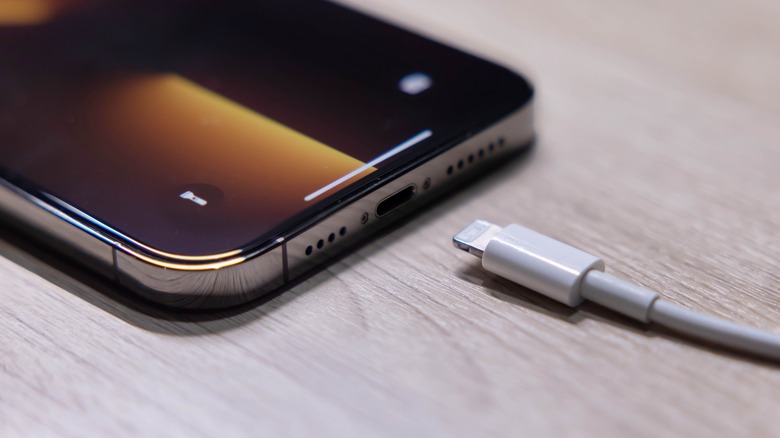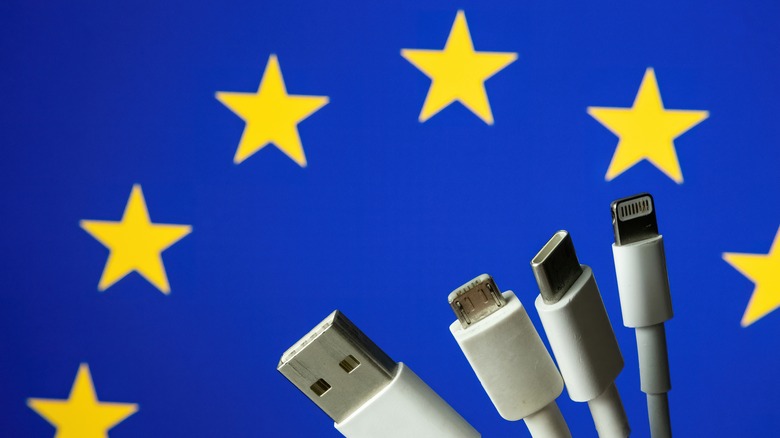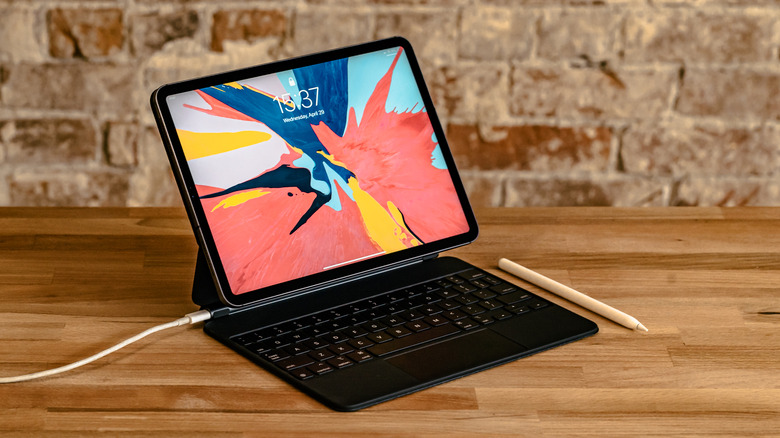2023 iPhone May Finally Support USB-C, According To Influential Analyst
There's no denying that Apple loves its proprietary connectivity standards. Since the iPhone 5 was released in 2012, the company has been using the Lightning connector as the de-facto wired connectivity standard on all iPhones. This standard has remained virtually unchanged for well over a decade now. However, if we are to believe fresh reports, this could change as soon as next year.
In a recent Twitter thread, noted analyst Ming-Chi Kuo hinted at the possibility of Apple finally ditching its proprietary Lightning port standard in favor of the more prevalent USB-C standard. According to Kuo, the change will not affect the iPhone 14 models Apple plans to introduce this year. Instead, the move to USB-C will happen when Apple releases the iPhone 15 series in the second half of 2023. This marks a departure from Kuo's earlier assertion about Apple sticking with the Lightning port on iPhones for the "foreseeable future" (via MacRumors).
Apple buckling to the EU?
If Apple does make the historic jump to the USB-C standard next year, you might want to thank the European Union. The EU has been pressuring Apple to adopt the USB-C standard for a long time now. Apple, which has resisted this change, has asserted that this move would be detrimental to the company's MiFi business. The company is seemingly also concerned about USB-C's lower water-resisting capabilities.
With Apple continuing to resist, the EU is on the verge of passing new legislation that will force Apple to ship iPhones featuring USB-C within the EU. If the legislation is passed, Apple would need to manufacture separate USB-C-equipped models just for the EU while it continues to sell the standard Lightning cable equipped models in the rest of the world. Apart from increasing costs for Apple, this would also add complexities to Apple's already long supply chain. Given the circumstances, it makes sense for Apple to simply give in to the EU's demand.
What does this mean for Apple's ecosystem?
Even though Apple continues to resist the move to USB-C on the iPhone, many of its products already support the standard. For example, most of the company's existing iPad products already feature USB-C ports. Moving to the faster and more widely used USB-C standard will also ensure that wired file transfers from iPhones to other devices can be completed faster. This would also mean less complexity and a faster workflow for iPhone users who work with devices outside of Apple's ecosystem.
Another option for Apple to help it circumvent EU-imposed restrictions on the Lightning port would be to go completely portless. There have been reports about Apple toying around with the idea of improving upon the iPhone's existing wireless charging capabilities to make it completely wireless. Future iPhones could, for example, be charged via a MagSafe-compatible wireless charging dock that simply attaches to the phone's rear panel. It remains to be seen if Kuo's prediction about 2023 iPhone models moving to USB-C ports for wired connectivity does turn out to be true.


